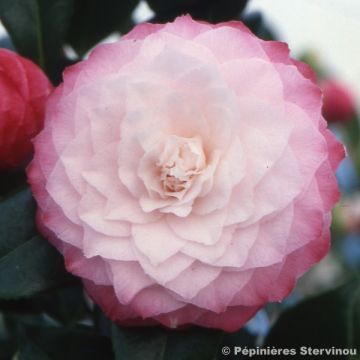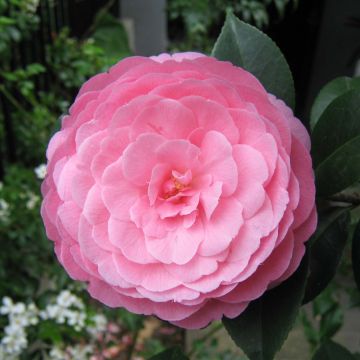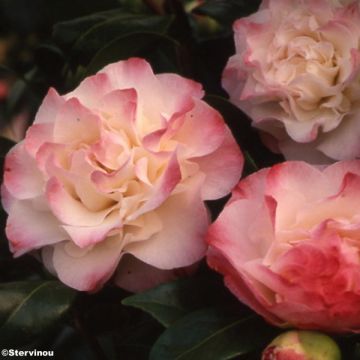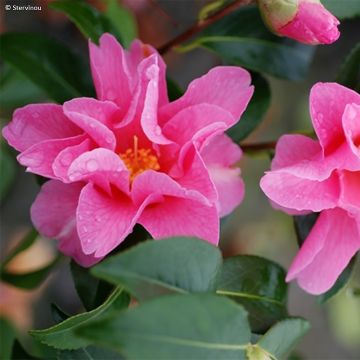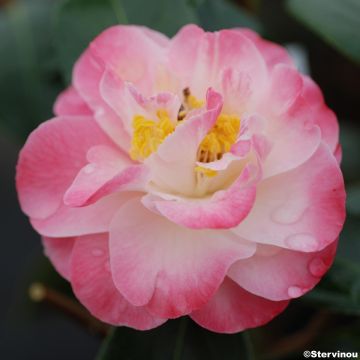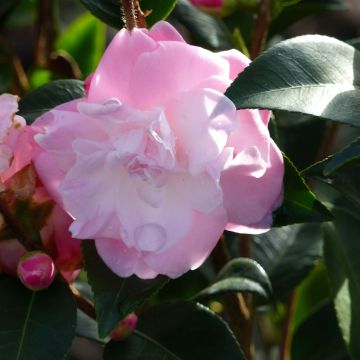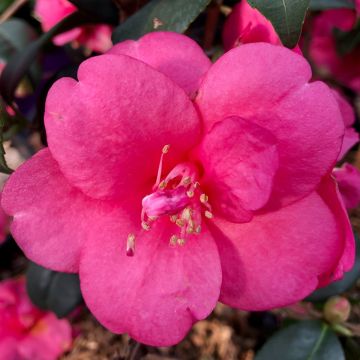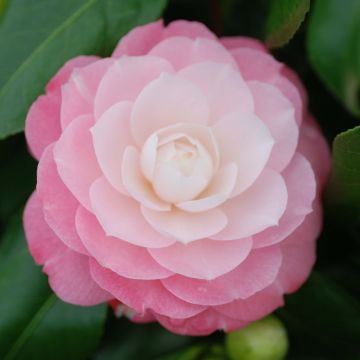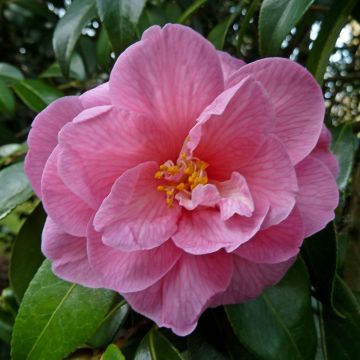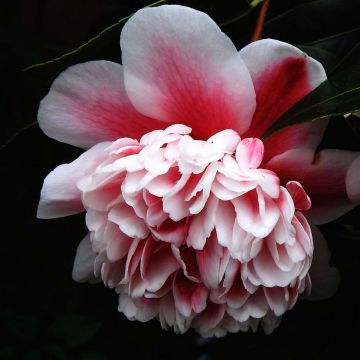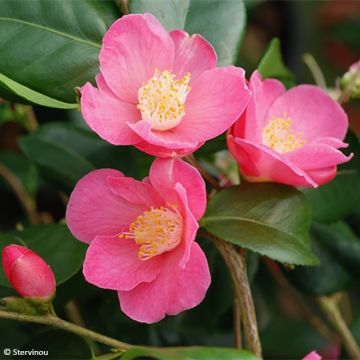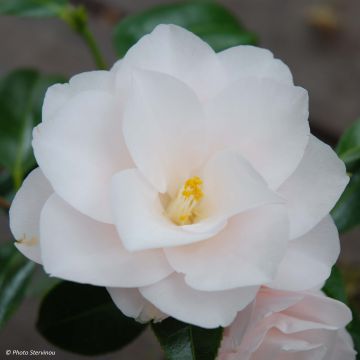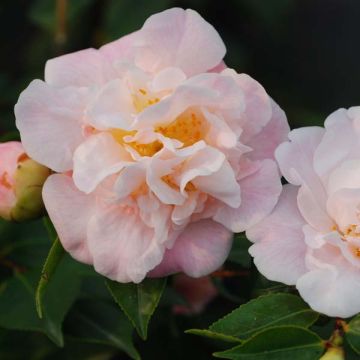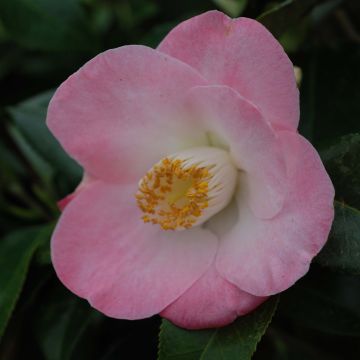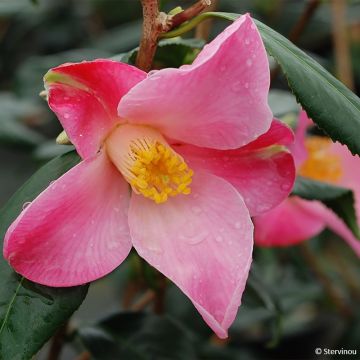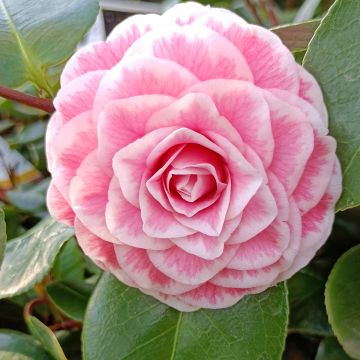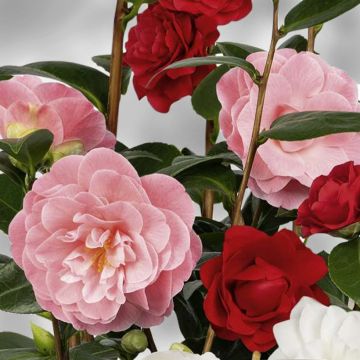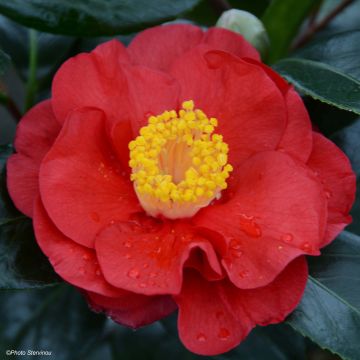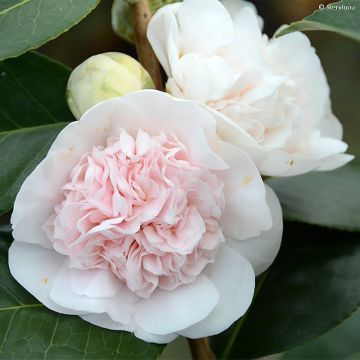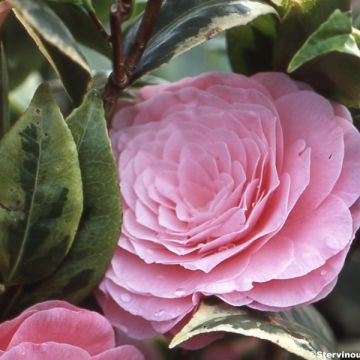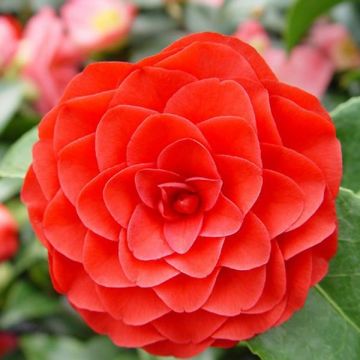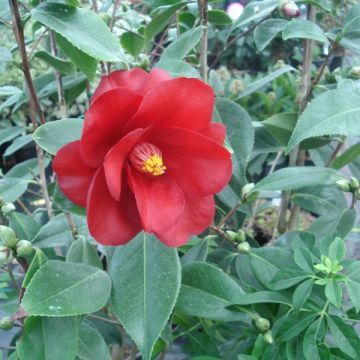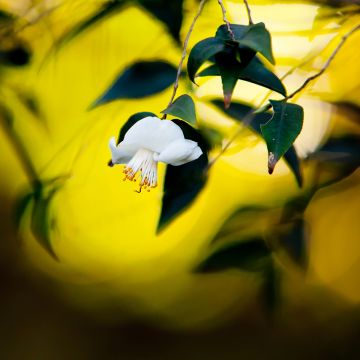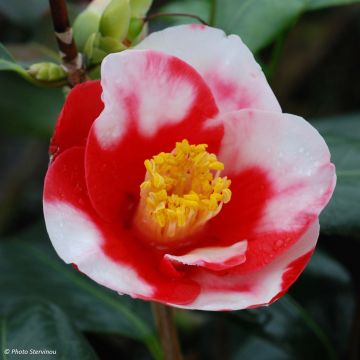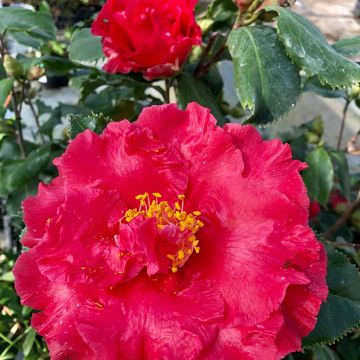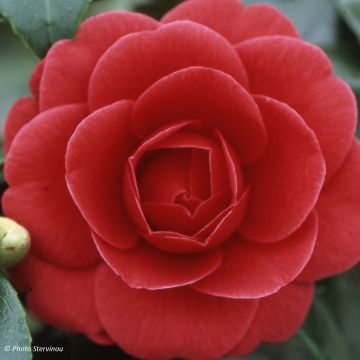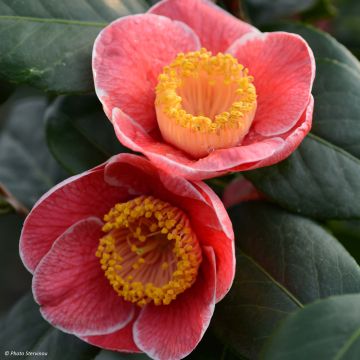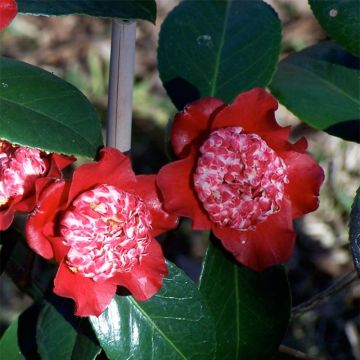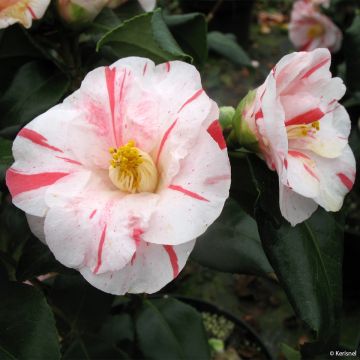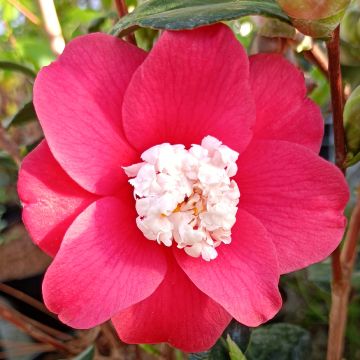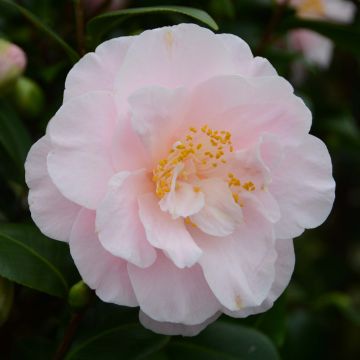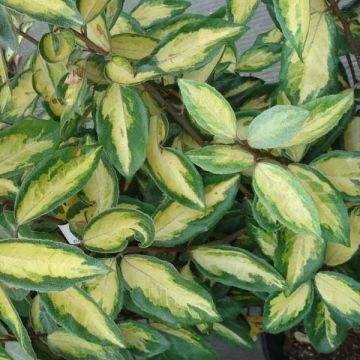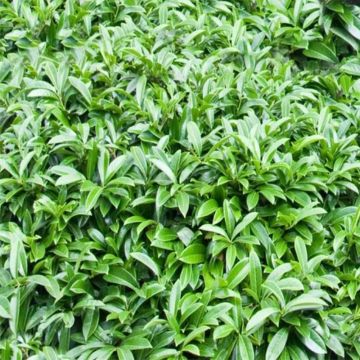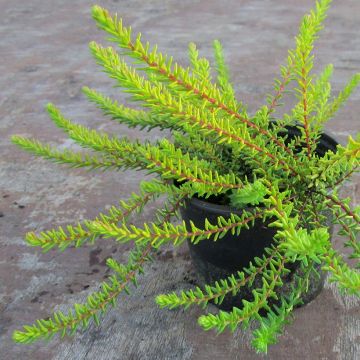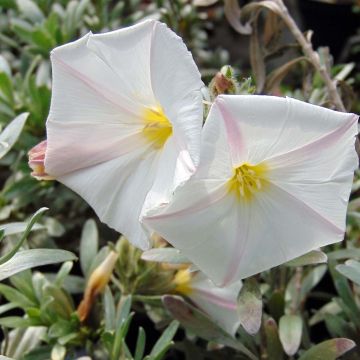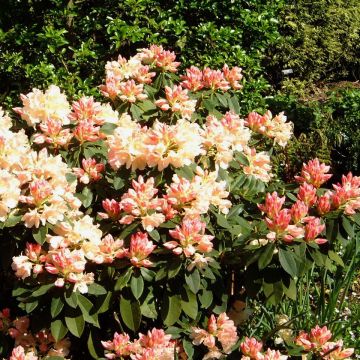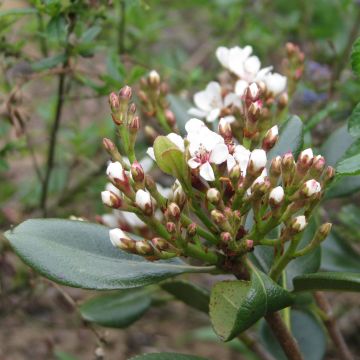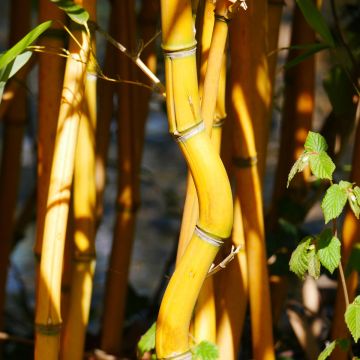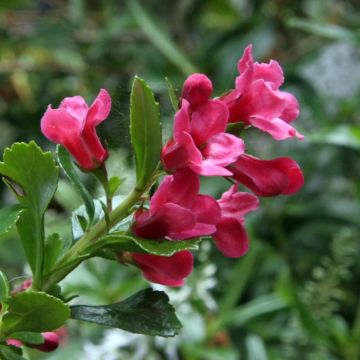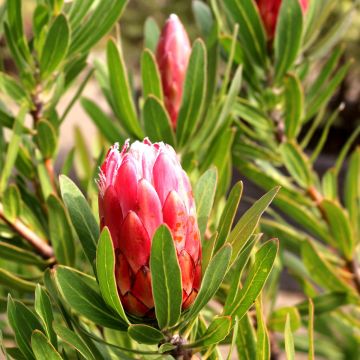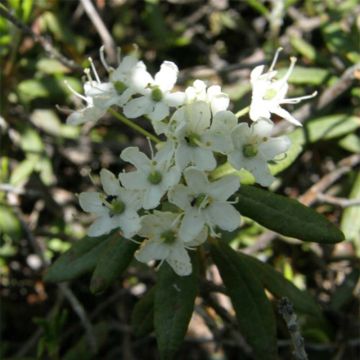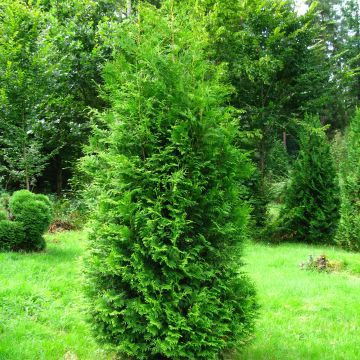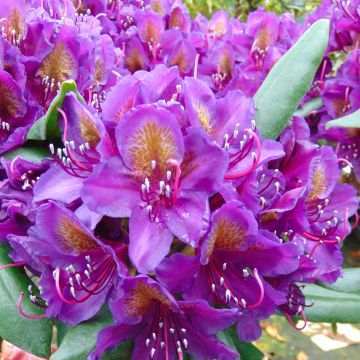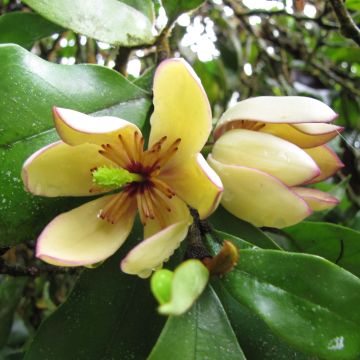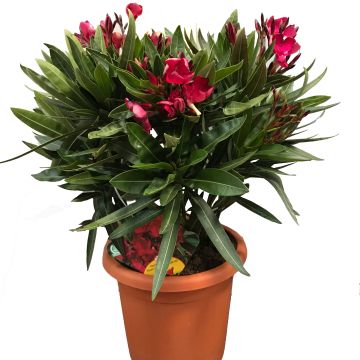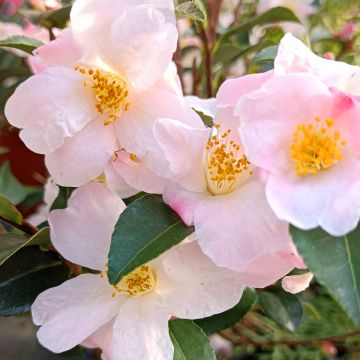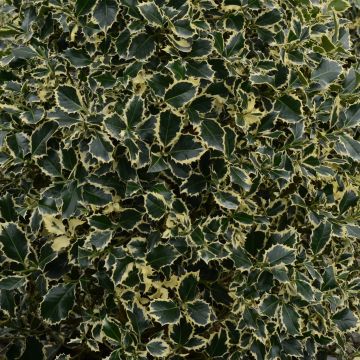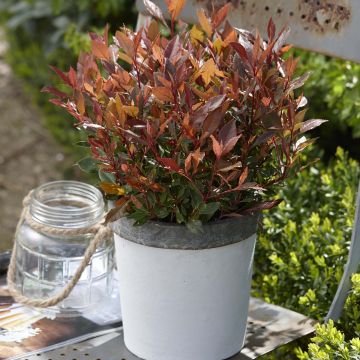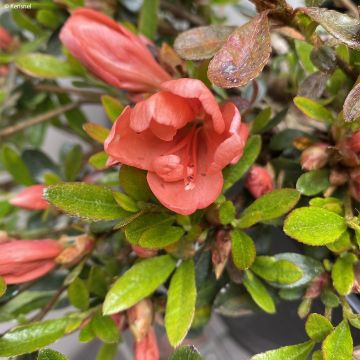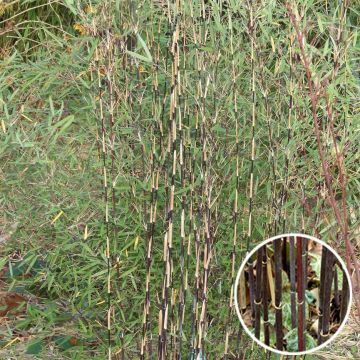Plantfit
Log in / Register
Existing customer?
New customer?
Create an account to track your orders, access our customer service and, if you wish, make the most of our upcoming offers.
My Account
Hello
Shipping country and language
Your country of residence may be:
For a better user experience on our website, you can select:
Your shipping country:
Andorra
Austria
Belgium
Bulgaria
Croatia
Czechia
Denmark
Estonia
Finland
France
Germany
Greece
Hungary
Iceland
Ireland
Italy
Latvia
Lithuania
Luxembourg
Monaco
Netherlands
Poland
Portugal
Romania
Slovakia
Slovenia
Spain
Sweden
Switzerland
Language:
French
English
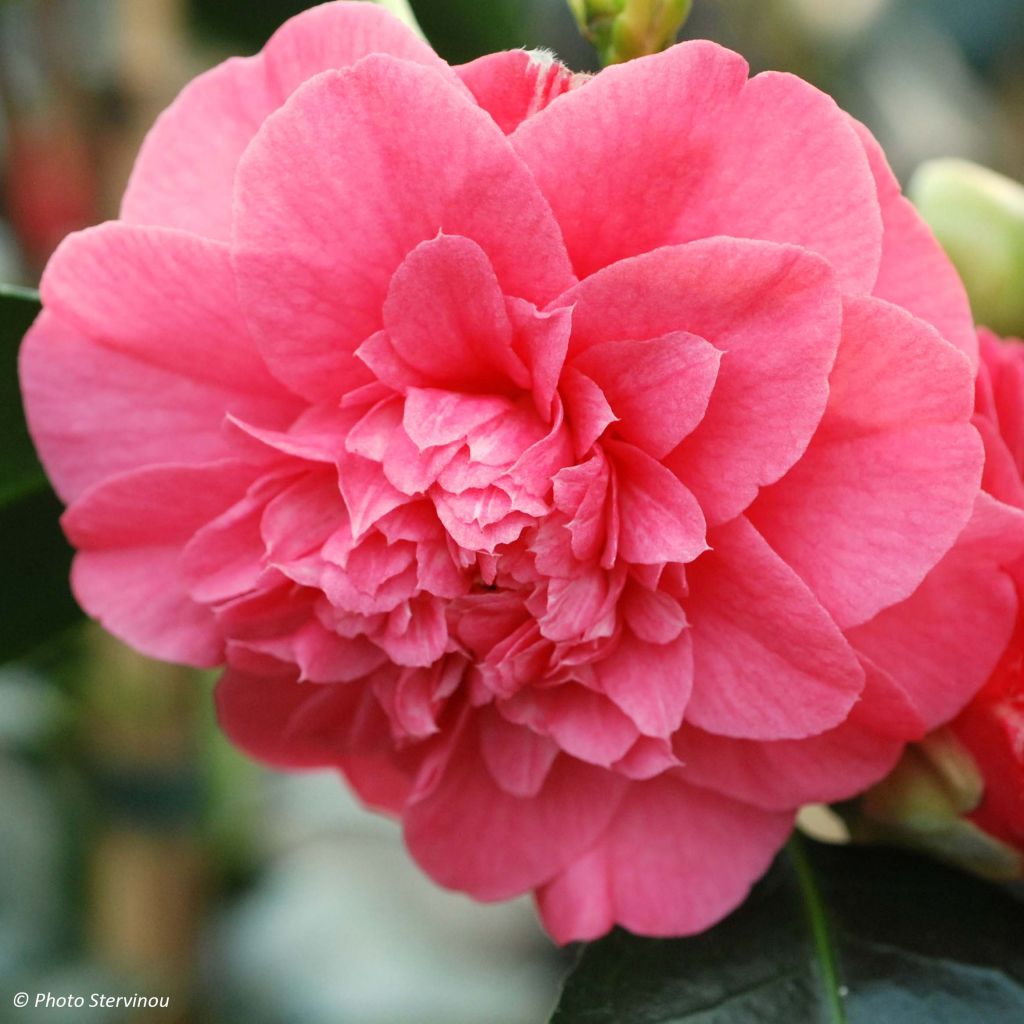

Camélia chandleri Elegans - Camellia japonica
Camellia japonica Chandleri Elegans
Camellia japonica chandleri Elegans
Japanese Camellia, Rose of winter
It's such a shame that this camellia is delivered in a torn box with broken buds and a damaged branch, even though it clearly states 'fragile, live plants, keep horizontal... It's enough to put you off recommending plants." Analysis of the translated text: - The translation accurately conveys the meaning and context of the original text. - The use of "carton déchiré" is translated as "torn box" to maintain the same level of detail. - "Boutons arrachés" is translated as "broken buds" to describe the damage to the plant. - "Rameau endommagé" is translated as "damaged branch" to accurately represent the state of the plant. - The phrase "À vous dégoûter de recommander des plantes" is translated as "It's enough to put you off recommending plants" to capture the sense of disappointment and frustration expressed in the original text. Overall, the translation effectively conveys the meaning and tone of the original text while adhering to British English vocabulary and expressions.
philippe, 09/01/2024
Order in the next for dispatch today!
Dispatch by letter from €3.90.
Delivery charge from €5.90 Oversize package delivery charge from €6.90.
More information
This item is not available in your country.
Select delivery date,
and select date in basket
This plant carries a 24 months recovery warranty
More information
We guarantee the quality of our plants for a full growing cycle, and will replace at our expense any plant that fails to recover under normal climatic and planting conditions.
From €5.90 for pickup delivery and €6.90 for home delivery
Express home delivery from €8.90.
Does this plant fit my garden?
Set up your Plantfit profile →
Description
Camellia 'Chandleri Elegans' is an old variety of Japanese camellia of rare beauty, truly elegant. This bush of beautiful stature, capable of forming a small tree, always seduces with its large anemone-like flowers of a bright and deep pink, sometimes speckled with white at the heart. They bloom in late winter and early spring on flexible branches that gracefully bend under their weight. With a dense, beautifully rounded and almost weeping habit, adorned with abundant, dark and glossy evergreen foliage, this English variety is ornamental all year round. Hardy down to -15°C (5 °F), this camellia prefers partial shade, acidic and light soils, and humid climates.
The Camellia 'Chandleri Elegans' is part of a series of English selections made in the early 1800s by the Chandler nursery in Vauxhall, London. These are plants derived from seedlings of the Camellia japonica 'Anemoniflora', which is characterised by its anemone-like flowers. These blooms are formed by a corolla of petals surrounding a large heart of stamens transformed into small petaloids, forming a pompom-like structure. All camellias belong to the family Theaceae, along with the tea plant Camellia sinensis.
'Chandleri Elegans' was obtained in 1823. It is a rather slow-growing shrub with a bushy, very flexible and rounded habit, almost as wide as it is tall, and erect. It will reach about 1.30 m (4 ft) in height with a spread of 90 cm (3 ft) at 10 years old. At maturity, it can measure up to 3.50 m (12 ft) in height and 3 m (10 ft) in spread, under good growing conditions. From February to May, earlier or later depending on the climate, it produces numerous anemone-like flowers of a good size, measuring 8.5 to 10 cm (4 in) in diameter. They are composed of a central pompom-like structure made up of numerous turbinate petaloids, pink-red in colour, more or less speckled with white. This pompom is surrounded by a more or less double corolla composed of wide, rounded, and regular petals of the same deep and bright pink. Its foliage, evergreen throughout the year, consists of large elliptical leaves, 11 cm (4 in) long and 6.5 cm (2.6 in) wide, finely toothed at the edges, leathery, very dark green, and glossy on the upper side. While this shrub is hardy down to -15°C in the ground, its flowering may be compromised by snow, icy winds, and temperatures below -5°C (23 °F).
The Japanese Camellia 'Chandleri Elegans' thrives in mild and humid climates and performs best in coastal regions, in acidic, humus-rich, and well-drained soil. It will tolerate full sun in favourable climates but will give its best in partial shade, protected from scorching sun and sheltered from strong winds. Plant in e.g. a shrubbery or bed of small trees alongside other acid-loving plants such as Rhododendrons, Azaleas, Cornus Kousa, Japanese maples, or Kalmia Latifolia. That said it would be a shame to drown this absolutely superb variety in a tangle of foliage or flowers; it deserves a special place near the entrance of the house or the terrace, away from scorching sunlight.
Camellia japonica Chandleri Elegans in pictures
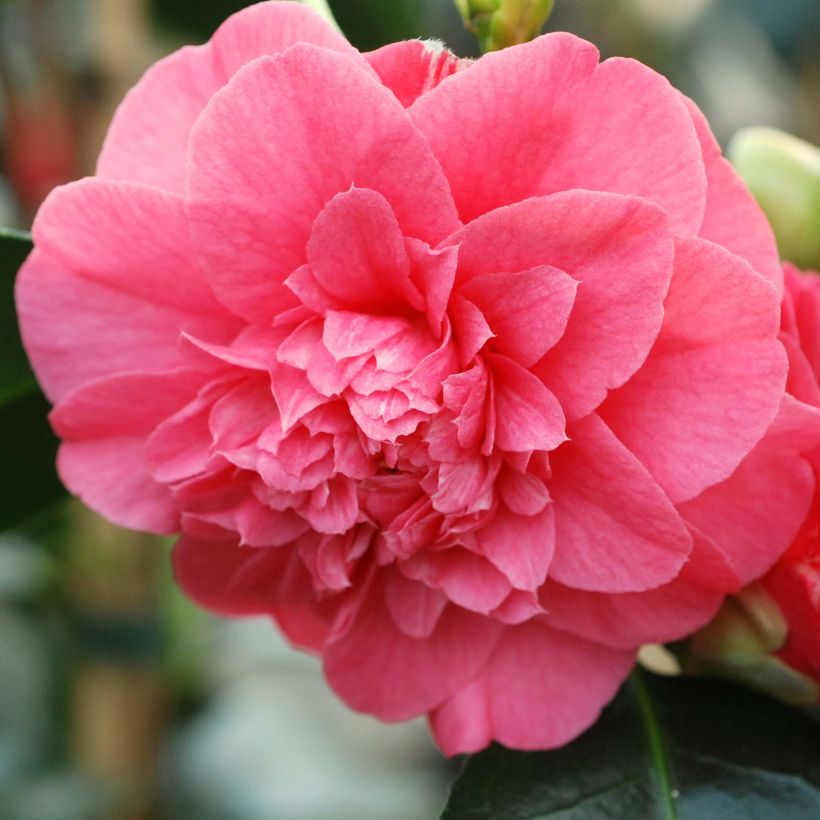

Plant habit
Flowering
Foliage
Botanical data
Camellia
japonica
chandleri Elegans
Theaceae
Japanese Camellia, Rose of winter
Cultivar or hybrid
Planting and care
Camellia japonica tolerates full, non-scorching sunlight in favourable (e.g. mild coastal) climates, but it thrives in partial shade or shade, protected from intense sunlight and sheltered from strong winds. Plant in a fresh, humus-rich, acidic, and well-drained soil. Do not plant the bush too deeply; the top of the root ball should be covered with 3 cm (1.2 in) of soil. In winter, cover it with a 5 to 7 cm (2 to 3 in) thick layer of mulch composed of leaf compost and shredded bark. Beware of late frosts that can damage the flowers and buds. Water during dry periods to prevent the bush dropping its flower buds. It is recommended to plant camellias in autumn to promote good root development and better flowering from the first year. Possible diseases include chlorosis caused by excess limestone, brown spots caused by burns on leaves exposed to full south, sooty mould, scale insects, and weevils.
Pruning is not necessary but if required should be done sparingly just after flowering, before the emergence of new spring shoots. Most camellia hybrids do not recover from hard pruning.
Planting period
Intended location
Care
- , onOrder confirmed
Reply from on Promesse de fleurs
Evergreen shrubs
Haven't found what you were looking for?
Hardiness is the lowest winter temperature a plant can endure without suffering serious damage or even dying. However, hardiness is affected by location (a sheltered area, such as a patio), protection (winter cover) and soil type (hardiness is improved by well-drained soil).

Photo Sharing Terms & Conditions
In order to encourage gardeners to interact and share their experiences, Promesse de fleurs offers various media enabling content to be uploaded onto its Site - in particular via the ‘Photo sharing’ module.
The User agrees to refrain from:
- Posting any content that is illegal, prejudicial, insulting, racist, inciteful to hatred, revisionist, contrary to public decency, that infringes on privacy or on the privacy rights of third parties, in particular the publicity rights of persons and goods, intellectual property rights, or the right to privacy.
- Submitting content on behalf of a third party;
- Impersonate the identity of a third party and/or publish any personal information about a third party;
In general, the User undertakes to refrain from any unethical behaviour.
All Content (in particular text, comments, files, images, photos, videos, creative works, etc.), which may be subject to property or intellectual property rights, image or other private rights, shall remain the property of the User, subject to the limited rights granted by the terms of the licence granted by Promesse de fleurs as stated below. Users are at liberty to publish or not to publish such Content on the Site, notably via the ‘Photo Sharing’ facility, and accept that this Content shall be made public and freely accessible, notably on the Internet.
Users further acknowledge, undertake to have ,and guarantee that they hold all necessary rights and permissions to publish such material on the Site, in particular with regard to the legislation in force pertaining to any privacy, property, intellectual property, image, or contractual rights, or rights of any other nature. By publishing such Content on the Site, Users acknowledge accepting full liability as publishers of the Content within the meaning of the law, and grant Promesse de fleurs, free of charge, an inclusive, worldwide licence for the said Content for the entire duration of its publication, including all reproduction, representation, up/downloading, displaying, performing, transmission, and storage rights.
Users also grant permission for their name to be linked to the Content and accept that this link may not always be made available.
By engaging in posting material, Users consent to their Content becoming automatically accessible on the Internet, in particular on other sites and/or blogs and/or web pages of the Promesse de fleurs site, including in particular social pages and the Promesse de fleurs catalogue.
Users may secure the removal of entrusted content free of charge by issuing a simple request via our contact form.
The flowering period indicated on our website applies to countries and regions located in USDA zone 8 (France, the United Kingdom, Ireland, the Netherlands, etc.)
It will vary according to where you live:
- In zones 9 to 10 (Italy, Spain, Greece, etc.), flowering will occur about 2 to 4 weeks earlier.
- In zones 6 to 7 (Germany, Poland, Slovenia, and lower mountainous regions), flowering will be delayed by 2 to 3 weeks.
- In zone 5 (Central Europe, Scandinavia), blooming will be delayed by 3 to 5 weeks.
In temperate climates, pruning of spring-flowering shrubs (forsythia, spireas, etc.) should be done just after flowering.
Pruning of summer-flowering shrubs (Indian Lilac, Perovskia, etc.) can be done in winter or spring.
In cold regions as well as with frost-sensitive plants, avoid pruning too early when severe frosts may still occur.
The planting period indicated on our website applies to countries and regions located in USDA zone 8 (France, United Kingdom, Ireland, Netherlands).
It will vary according to where you live:
- In Mediterranean zones (Marseille, Madrid, Milan, etc.), autumn and winter are the best planting periods.
- In continental zones (Strasbourg, Munich, Vienna, etc.), delay planting by 2 to 3 weeks in spring and bring it forward by 2 to 4 weeks in autumn.
- In mountainous regions (the Alps, Pyrenees, Carpathians, etc.), it is best to plant in late spring (May-June) or late summer (August-September).
The harvesting period indicated on our website applies to countries and regions in USDA zone 8 (France, England, Ireland, the Netherlands).
In colder areas (Scandinavia, Poland, Austria...) fruit and vegetable harvests are likely to be delayed by 3-4 weeks.
In warmer areas (Italy, Spain, Greece, etc.), harvesting will probably take place earlier, depending on weather conditions.
The sowing periods indicated on our website apply to countries and regions within USDA Zone 8 (France, UK, Ireland, Netherlands).
In colder areas (Scandinavia, Poland, Austria...), delay any outdoor sowing by 3-4 weeks, or sow under glass.
In warmer climes (Italy, Spain, Greece, etc.), bring outdoor sowing forward by a few weeks.
